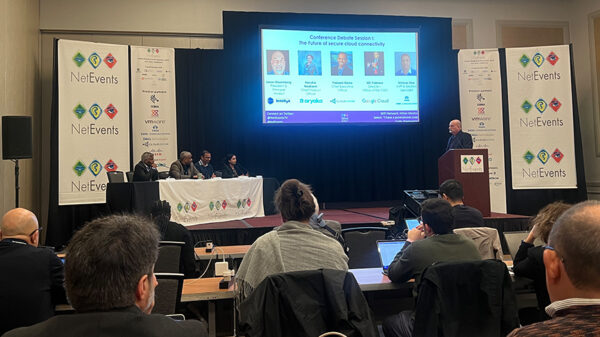IPC has been in the business of cloud services even before the term “cloud computing” was coined.
 “It all started when we became a Salesforce.com Referral Partner in 2007, allowing us to offer Salesforce.com CRM (Customer Relationship Management) licenses and consulting services to businesses. In 2010, we became a Google Apps for Work Partner, which enabled us to offer the popular email and collaboration suite to various organizations. Two years later, we launched cloud.com.ph, the country’s first locally-hosted Infrastructure-as-a-Service (IaaS) platform,” said Rene Huergas, IPC president.
“It all started when we became a Salesforce.com Referral Partner in 2007, allowing us to offer Salesforce.com CRM (Customer Relationship Management) licenses and consulting services to businesses. In 2010, we became a Google Apps for Work Partner, which enabled us to offer the popular email and collaboration suite to various organizations. Two years later, we launched cloud.com.ph, the country’s first locally-hosted Infrastructure-as-a-Service (IaaS) platform,” said Rene Huergas, IPC president.
Since then, IPC has “expanded our portfolio with other cloud services to address the various needs of growing enterprises amidst the digital shift.” In fact, “we have recently launched IPC PayCheck, a payroll and timekeeping solution; and IPC Voices, a contact center solution. Our IPC DDoS Mitigation service, which we pioneered here in the Philippines, is also cloud-based.”
Huergas admitted that, in general, “we still lag behind our neighbors in Southeast Asia in terms of cloud adoption. Nonetheless, we expect it to speed up as more and more enterprises are realizing the power of the cloud.”
For IPC, “more and more companies are subscribing to our various cloud services. Google Apps for Work and our cloud platform are two examples. We believe that this is a sign that the Philippine market is steadily maturing over the years. We are constantly innovating and partnering with global leaders in order to help enterprises, regardless of size, focus on their core business rather than stressing over operations and business processes that they can otherwise ‘outsource’ to the cloud,” Huergas said.
On the effect of the continuing confusion of many about cloud and its benefits, Huergas said that the “lack of full knowledge and understanding about how the cloud works is a hindrance in terms of adopting the technology. Many still have the notion that the cloud is unsecured and therefore, miss out on its benefits.”
This is why, in the case of IPC, “to bridge this gap, IPC has embraced a cloudvocacy which we’ve dubbed ThinkOutCloud― one that drives us to come up with various initiatives to educate the general public and our stakeholders about the power of the cloud, for both their business and personal needs,” Huergas said. “We embody our ThinkOutCloud initiative through our company blog (thinkoutcloud.ph), webinars and webcasts, as well as the various seminars we have offered and will continue to offer to the public, free of charge. We have covered various topics on cloud computing, data centers, and more. Our primary goal is to explain and demystify the concept of cloud.”
Webinar and webcast schedules may be accessed HERE.
In IPC’s experience, industries in the Philippines that have been leading cloud adoption include: telecommunication and IT companies, followed by small, retail companies that need mobile connectivity solutions.
“Any industry can benefit from using cloud applications ― from email to payroll to CRM ― these are just a few of the things that they can ‘outsource’ to the cloud, letting them focus on their core business,” Huergas said.
For Huergas, “perhaps one of the most apparent benefits of the cloud is that it eliminates huge CapEx (capital expenditure) because the services are billed as they are used― the same way that you are billed for utilities. Moreover, it is highly flexible, allowing one to scale up or down as needed.”
IPC’s portfolio includes Google Apps for Work, Chrome for Work, Salesforce.com CRM, its own IaaS through cloud.com.ph, IPC Voices, IPC Paycheck, and IPC DDoS Mitigation.
“What makes our products unique is that (1) through our partnerships with global technology leaders, we are able to offer international products with localized support, and (2) we address data sovereignty concerns by hosting data in-country,” Huergas said. “Moreover, our products and services are available through our Enterprise Sachet setup, a pay-as-you-go model that allows companies to use business productivity tools and compute resources on-demand and pay only for what is required at any given point in time, via online payment.”
For more information, visit www.ipc.ph.






















































































































